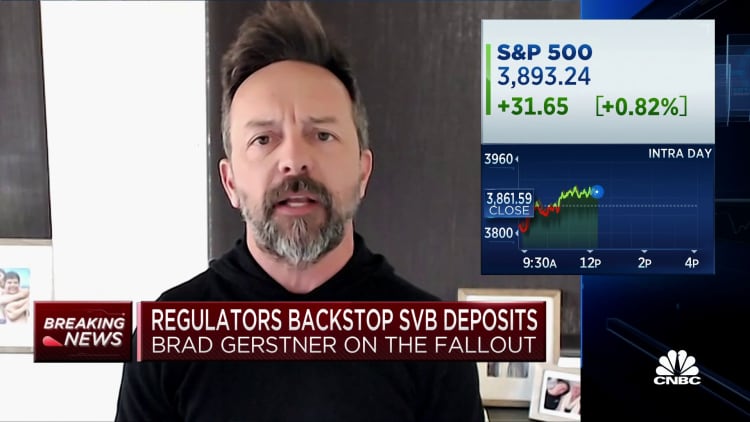
Would You like a feature Interview?
All Interviews are 100% FREE of Charge
as a fallout from Silicon Valley BankAltimeter Capital’s Brad Gerstner told CNBC’s Halftime Report on Monday that the Federal Reserve needed to slow down before “more stuff” collapsed.
Gerstner said he was not “pointing” at Federal Reserve Chairman Jerome Powell. But Gerstner said there would be “many questions” about the Fed’s handling of inflation given the SVB’s collapse and the subsequent sale of local banks.
“Our head regulator [Powell] Gerstner said on Tuesday things were good.
This leaves room for “a lot of research and a lot of questions for everyone involved,” he said.
Three important banks with high exposure to start-ups and cryptocurrencies have gone bankrupt or closed in the past week.
On Wednesday, a crypto-focused silvergate bank He said he would scale back and liquidate. The next day, SVB’s shares plummeted after the bank announced it was looking to raise cash by selling securities at a loss, prompting a number of venture-backed technology clients to withdraw. By Friday, the SVB was closed by regulators.
Silvergate, SVB, and signature bankClosed by regulators on Sunday, they were all medium-sized banks focused on speculative technology or crypto investments. Their profile was very different from most local banks, which focus on small businesses and individual consumers.
Gerstner said the risks to the regional banking sector go far beyond just the SVB or “young startup founders”, but that the market’s “primary source of funding” disappeared “virtually overnight”. I said it’s important to be careful.
Gerstner told CNBC’s Scott Wapner before comparing the current situation to the 2008 financial crisis. “Here we go again. The world is undergoing a massive reset.”
Gerstner said the Fed’s efforts to curb inflation by rapidly raising interest rates had thrown banks into chaos.
“This was not an issue for the startup ecosystem,” the investor continued. “This was a national banking problem.”
Yield is 10 year government bond It fell nearly 20 basis points to 3.50% on Monday, but was above 4% earlier this month.
“This is the market saying to the Fed, ‘We better slow down, or we’re going to have a lot more things going bust,'” Gerstner said. “We’re going to have a massive recession and much bigger problems.”
































